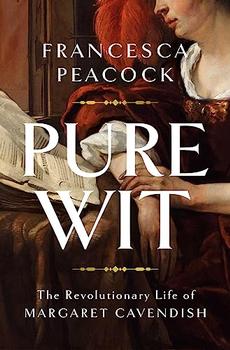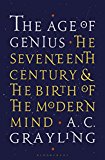Summary | Excerpt | Reading Guide | Reviews | Read-Alikes | Genres & Themes | Author Bio

A Historical Memoir of Science, Faith, and Love
by Dava SobelDramatically recolors the personality and accomplishment of a mythic figure whose seventeenth-century clash with Catholic doctrine continues to define the schism between science and religion.
Inspired by a long fascination with Galileo, and by the remarkable surviving letters of Galileo's daughter, a cloistered nun, Dava Sobel has written a biography unlike any other of the man Albert Einstein called "the father of modern physics--indeed of modern science altogether." Galileo's Daughter also presents a stunning portrait of a person hitherto lost to history, described by her father as "a woman of exquisite mind, singular goodness, and most tenderly attached to me."
The son of a musician, Galileo Gahlei (1564-1642) tried at first to enter a monastery before engaging the skills that made him the foremost scientist of his day. Though he never left Italy, his inventions and discoveries were heralded around the world. Most sensationally, his telescopes allowed him to reveal a new reality in the heavens and to reinforce the astounding argument that the Earth moves around the Sun. For this belief, he was brought before the Holy Office of the Inquisition, accused of heresy, and forced to spend his last years under house arrest.
Of Galileo's three illegitimate children, the eldest best mirrored his own brilliance, industry, and sensibility, and by virtue of these qualities became his confidante. Born Virginia in 1600, she was thirteen when Galileo placed her in a convent near him in Florence, where she took the most appropriate name of Suor Maria Celeste. Her loving support, which Galileo repaid in kind, proved to be her father's greatest source of strength throughout his most productive and tumultuous years. Her presence, through letters which Sobel has translated from their original Italian and masterfully woven into the narrative, graces her father's life now as it did then.
Galileo's Daughter dramatically recolors the personality and accomplishment of a mythic figure whose seventeenth-century clash with Catholic doctrine continues to define the schism between science and religion. Moving between Galileo's grand public life and Maria Celeste's sequestered world, Sobel illuminates the Florence of the Medicis and the papal court in Rome during the pivotal era when humanity's perception of its place in the cosmos was being overturned. In that same time, while the bubonic plague wreaked its terrible devastation and the Thirty Years' War tipped fortunes across Europe, one man sought to reconcile the Heaven he revered as a good Catholic with the heavens he revealed through his telescope.
With all the human drama and scientific adventure that distinguished Longitude, Galileo's Daughter is an unforgettable story.

If you liked Galileo's Daughter, try these:

by Francesca Peacock
Published 2024
A biography of the remarkable - and in her time scandalous - seventeenth-century writer Margaret Cavendish, who pioneered the science fiction novel.

by A.C. Grayling
Published 2017
Out of a 'fractured and fractious time,' the author asserts persuasively, the medieval mind evolved into the modern. Another thought-provoking winner from Grayling." - Kirkus
All my major works have been written in prison...
Click Here to find out who said this, as well as discovering other famous literary quotes!